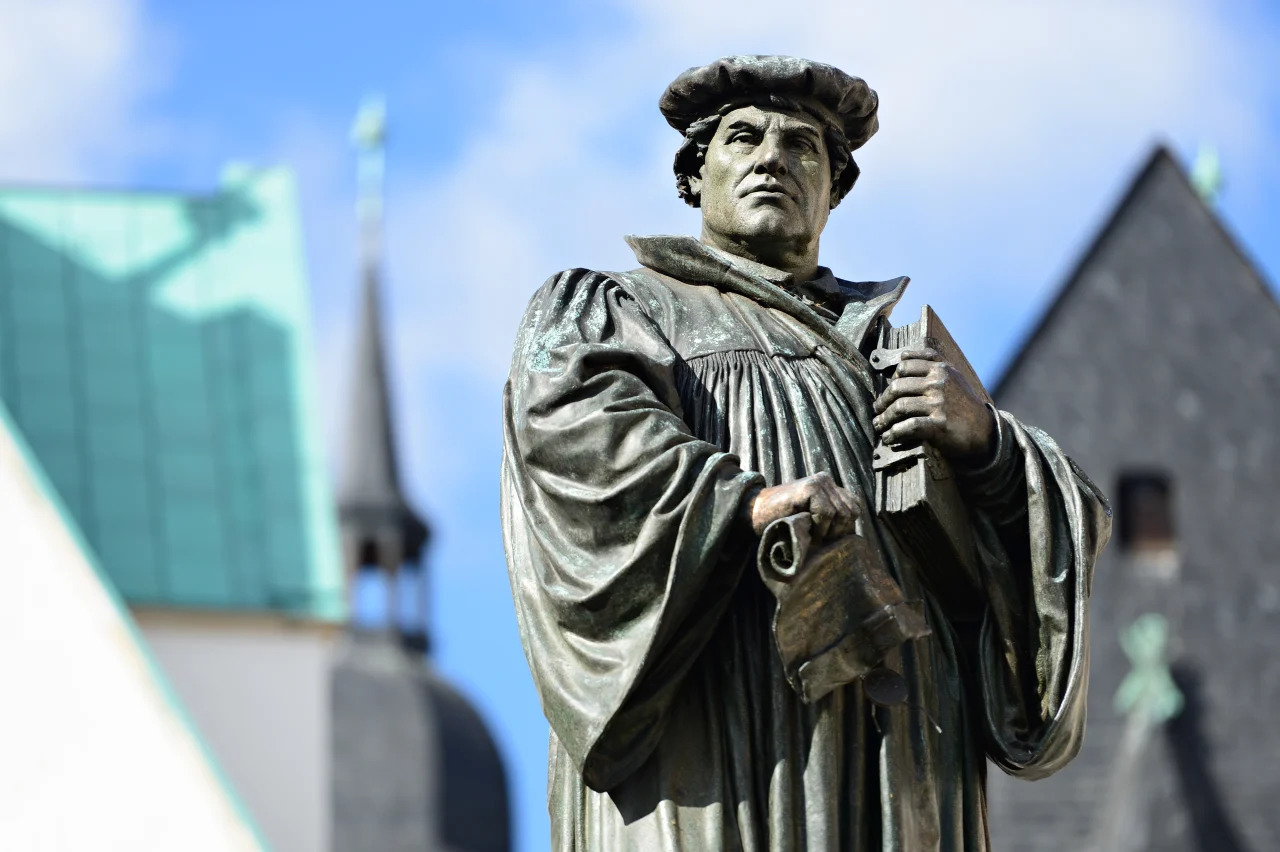
Martin Luther is undoubtedly one of the most influential figures in history. As a prominent leader of the Protestant Reformation in the 16th century, Luther’s actions and ideas forever altered the course of religious, social, and political landscapes. While many are familiar with his key role in challenging the Roman Catholic Church through his famous Ninety-Five Theses, there are numerous other fascinating aspects to Luther’s life that often go overlooked. From his personal struggles and extraordinary accomplishments to his impact on the world beyond religion, the life of Martin Luther is filled with truly unbelievable facts that will leave you in awe. In this article, we will delve into some of the most remarkable and lesser-known details about this iconic figure, shedding light on the multifaceted nature of Martin Luther.
Key Takeaways:
- Martin Luther’s 95 Theses sparked a religious revolution, reshaping Christianity and leaving an indelible mark on history.
- Luther’s courage to challenge the status quo and advocate for reform continues to inspire and shape religious and cultural landscapes globally.
Martin Luther was a key figure in the Protestant Reformation.
With his 95 Theses, Martin Luther sparked a religious revolution that would reshape the course of Christianity.
He was born on November 10, 1483, in Eisleben, Germany.
As a young boy, Martin Luther showed great promise and intelligence, which would later lead him to become a renowned theologian and reformer.
Luther became an Augustinian monk at the age of 22.
His decision to enter the monastery was influenced by a traumatic experience during a thunderstorm, which led him to make a vow to become a monk if he survived.
He translated the Bible into German.
Recognizing the importance of making the scriptures accessible to the common people, Luther dedicated himself to translating the Bible into the vernacular language of the German people.
Luther’s teachings emphasized the concept of justification by faith alone.
He believed that salvation could only be attained through faith in Jesus Christ, rejecting the Catholic Church’s teachings on works and indulgences.
His famous “Here I Stand” speech was delivered at the Diet of Worms in 1521.
When questioned about his controversial beliefs, Luther boldly proclaimed his unwavering stance, refusing to recant his teachings.
Luther married Katharina von Bora, a former nun.
Their marriage challenged the traditional views on celibacy and played a significant role in the Protestant Reformation.
He composed numerous hymns, including the well-known “A Mighty Fortress Is Our God.”
Luther’s hymns were instrumental in spreading the Protestant message and inspiring worshippers with their powerful and enduring lyrics.
He suffered from various health issues throughout his life.
Luther battled with kidney stones, heart problems, and depression, which often affected his physical and mental well-being.
Luther was a prolific writer, producing numerous theological treatises and pamphlets.
His writings, particularly his works on faith and grace, had a profound impact on religious thought and became foundational texts of the Protestant movement.
He was excommunicated by Pope Leo X.
Due to his challenging of the Catholic Church’s authority and refusal to retract his teachings, Luther was officially expelled from the Church in 1521.
Luther’s influence extended beyond religion.
His ideas on education, language, and social reforms helped shape the cultural and political landscape of Europe during the Renaissance.
He was a strong advocate for the education of both boys and girls.
Luther believed that all children, regardless of gender, should have access to education and developed schools where both sexes were taught.
Luther’s writings and teachings sparked religious conflicts and wars.
The Reformation led to years of turmoil and unrest as nations and individuals battled over religious beliefs and territories.
His legacy is still felt today.
Martin Luther’s groundbreaking ideas and courageous actions continue to influence Christianity and shape the modern world.
Conclusion
Martin Luther was undoubtedly one of the most influential figures in history. Through his beliefs, actions, and writings, he challenged the established norms of the Catholic Church and sparked the Protestant Reformation. His steadfast commitment to his principles and his unwavering determination to bring about change left a lasting impact on the world.
From his famous 95 Theses to his translation of the Bible into German, Martin Luther reshaped religious and social landscapes. He fought for religious freedom, emphasized the importance of individual interpretation of scriptures, and advocated for reforms in the Church.
Despite facing excommunication and opposition, Martin Luther’s ideas resonated with many, leaving a lasting legacy that continues to be studied and celebrated today. His courage, conviction, and unwavering belief in his cause continue to inspire generations to question authority and seek truth.
FAQs
Q: Who was Martin Luther?
A: Martin Luther was a German theologian and the primary catalyst behind the Protestant Reformation in the 16th century.
Q: What were the 95 Theses?
A: The 95 Theses were a list of arguments against various practices of the Catholic Church, particularly the sale of indulgences, posted by Martin Luther on October 31, 1517.
Q: How did Martin Luther influence the Protestant Reformation?
A: Martin Luther’s writings, teachings, and actions led to a significant break from the Catholic Church and the establishment of Protestantism as a separate branch of Christianity.
Q: What is the significance of Martin Luther translating the Bible into German?
A: By translating the Bible into German, Martin Luther made it accessible to the common people, enabling them to read and interpret the scriptures for themselves.
Q: How did Martin Luther’s beliefs differ from the Catholic Church?
A: Martin Luther rejected certain key doctrines of the Catholic Church, such as the authority of the Pope and the concept of salvation through good works, emphasizing personal faith and the grace of God.
Q: What is Martin Luther’s lasting legacy?
A: Martin Luther’s legacy includes the establishment of Protestantism, the promotion of religious freedom, and the championing of individual interpretation of scriptures.
Q: How did Martin Luther’s actions impact the world?
A: Martin Luther’s actions ignited a religious and social revolution that challenged traditional authority, encouraged critical thinking, and paved the way for significant religious and societal reforms.
Q: Were there any consequences for Martin Luther’s actions?
A: Yes, Martin Luther faced excommunication from the Catholic Church, but his teachings and ideas continued to gain followers and influence across Europe.
Q: How can Martin Luther’s teachings be relevant today?
A: Martin Luther’s teachings serve as a reminder of the importance of questioning authority, seeking truth, and advocating for religious freedom and individual rights.
Q: What can we learn from Martin Luther?
A: Martin Luther’s story teaches us the power of standing up for what we believe in, even in the face of adversity, and the potential impact that one individual’s voice can have on the world.
Inspired by Martin Luther's remarkable life? Explore more captivating facts about influential figures who shared his name. Delve into the astounding details surrounding the Dr Martin Luther King Jr Library, a testament to King's enduring legacy. Marvel at the astonishing facts that define this iconic institution. Hungry for more? Satisfy your curiosity with an extensive collection of lesser-known truths about Martin Luther King himself, painting a vivid picture of the man behind the movement.
Was this page helpful?
Our commitment to delivering trustworthy and engaging content is at the heart of what we do. Each fact on our site is contributed by real users like you, bringing a wealth of diverse insights and information. To ensure the highest standards of accuracy and reliability, our dedicated editors meticulously review each submission. This process guarantees that the facts we share are not only fascinating but also credible. Trust in our commitment to quality and authenticity as you explore and learn with us.


